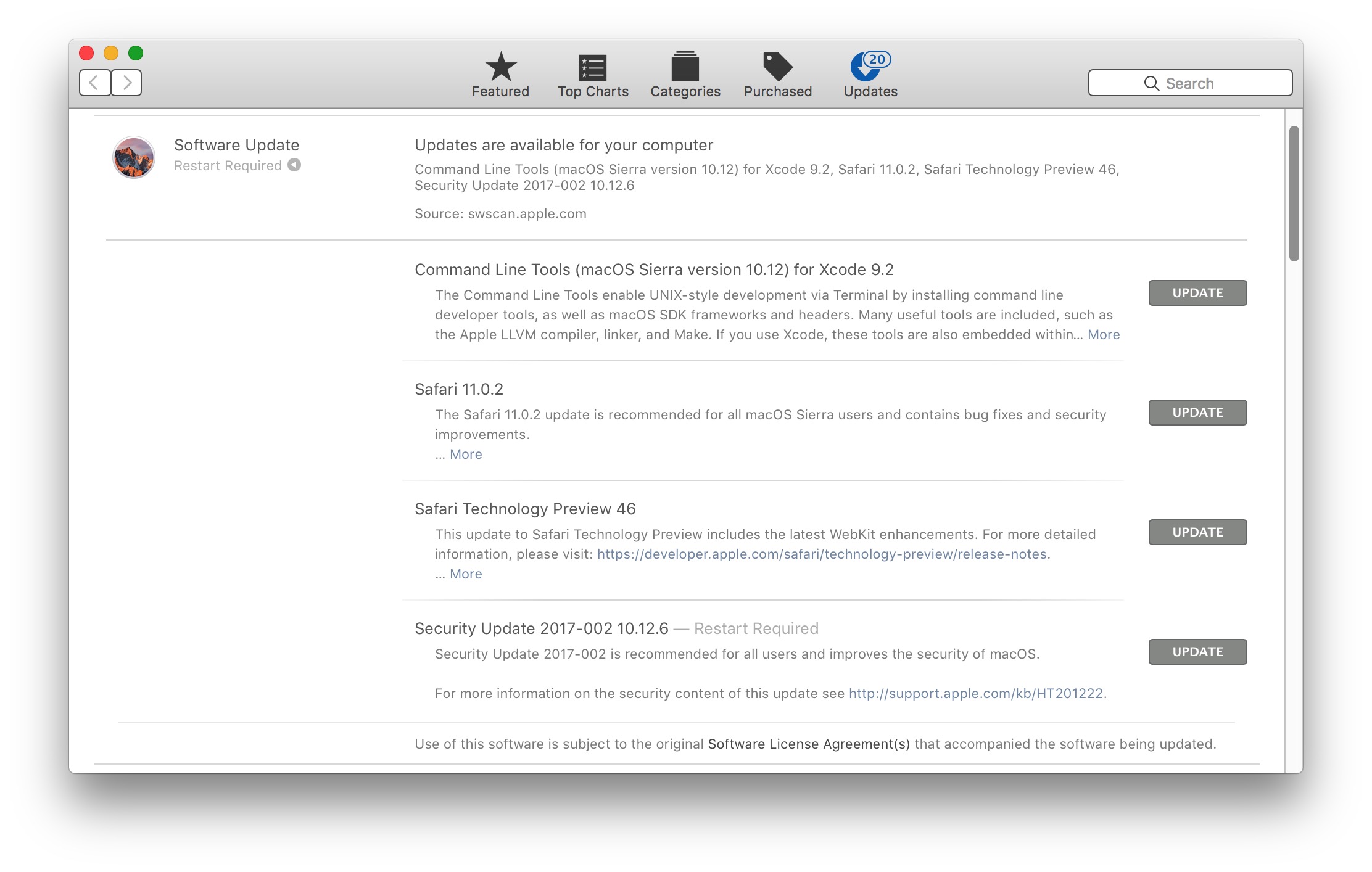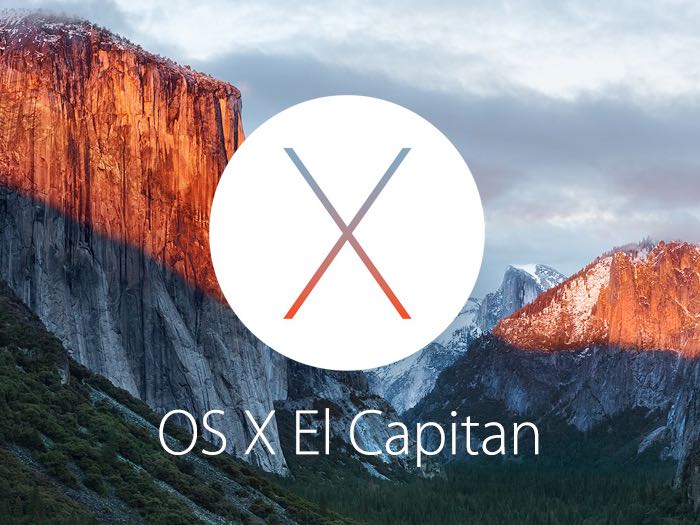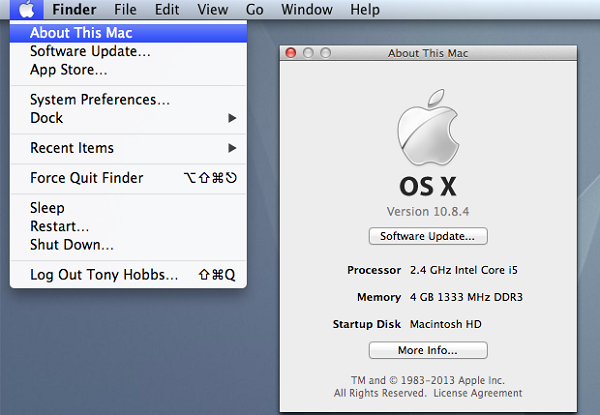Software Update El Capitan
'Can I still upgrade to El Capitan though the official update is outdated?' 'How do I upgrade to El Capitan? I'm using Yosemite, is there a way that can upgrade Yosemite to El Capitan?'
Watch out step by step guide to enable or disable Mac OS X auto updates in El Capitan or Yosemite.Here are more details: http://www.igeeksblog.com/how-to-ena.
If you're using OS X El Capitan v10.11.5 or later and your App Store preferences or Software Update preferences are set to download new updates when available, macOS Big Sur will download conveniently in the background, making it even easier to upgrade. A notification will inform you when macOS Big Sur is ready to be installed. El Capitan Software Update Apple’s Mac OS X El Capitan is a free update that has further simplified the OS X experience by featuring the upgraded performance, security, and convenience. With this twelfth main release of OS X after Yosemite and Mavericks, the Mac-based ecosystem got further tighter than ever before. The simplest way to update OS X to 10.11.5 is through the Mac App Store: Back up the Mac before beginning, with Time Machine or your backup method of choice. Open the Apple menu and go to “App Store”. Under the “Updates” tab you will find the “OS X El Capitan Update 10.11.5” available to download. The Mac must reboot to complete. The Steps for Upgrading to Mac OS X El 10.11 Capitan. The following is steps for upgrading to Mac OS X 10.11 Capitan: Visit the Mac App Store. Locate the OS X El Capitan Page. Click the Download button. Follow the simple instructions to complete the upgrade. For users without broadband access, the upgrade is available at the local Apple store.
On this page, we collected the complete process of how to upgrade to Mac OX S El Capitain 10.11.6 without losing any data. Follow this guide, you can download and install Mac OS X 10.11.6 on your computer with ease:
- Check If Your Mac Is Available for El Capitan Update
- Prepare Mac Ready Before El Capitan Update
- Update Mac OS X to El Capitan (Download OS X 10.11.6)
- Bonus Tip: Restore lost data after El Capitan update (without backups)
Tips on this page also work to upgrade macOS Mojave, High Sierra to the latest macOS Big Sur. You may also interest in: update and install macOS.
What Is Mac OS X El Capitan
El Capitan, the last edition known as Mac OS X 10.11.6, is an operating system between Yosemite and macOS Sierra, released on July 18, 2015.
Macbook Pro Software Update El Capitan
Here is a list of new features that Mac OS X 10.11.6 brings to most old Mac OS X users. And you may feel like downloading and installing the system on your Macs:
- Support multitask
- Better performance
- Better user experience
- Free download
So how to download or upgrade your Mac computer to El Capitan? Follow through the guides, any one of Mac users can make it.
1. Check If Your Mac Is Available for El Capitan Update
Before you take steps to update your present Mac OS X to El Capitan 10.11.6/10.11.2, check whether your Mac computer is available to download and install the new El Capitan. Check the below list and see whether your device or OS X can get the new update:
Supported Mac devices:
- iMac (Mid 2007 or newer)
- MacBook (Late 2008 Aluminum, Early 2009, or newer)
- MacBook Pro (Mid 2007 or newer)
- MacBook Air (Late 2008 or newer)
- Mac mini (Early 2009 or newer)
- Mac Pro (Early 2008 or newer)
- Xserve (Early 2009)
Available OS X for El Capitan:

- OS X Yosemite v10.10
- OS X Mavericks v10.9
- OS X Mountain Lion v10.8
- OS X Lion v10.7
- Mac OS X Snow Leopard v10.6.8
If your Mac OS X and devices are just right on the list, read on and follow tips to prepare your Mac OS ready for El Capitan update.
2. Prepare Mac Ready Before El Capitan Update
Let's see what you should do to prepare your Mac devices fully ready for the new El Capitan 10.11.6, etc. update. And if this is your first time updating Mac OS X, follow the tips below carefully:
#1. Hardware Requirement
- Leave at least 2GB memory and 8.8 GB of storage space on Mac
- Leave at least 45% battery on Mac
- Connect Mac to the internet or WiFi
- Update your Mac Apps to the latest versions
#2. Back Up All Important Mac Data (to An External Disk)
It's vitally important to back up important data on Mac to external storage devices, which will certainly help to avoid data loss issues due to Mac OS X update.
To do so, you have two options:
- Option 1. Back up all your data via Time Machine
- 1. Connect an external hard drive to Mac.
- 2. Click the Apple menu icon, click 'System Preference', and click 'Time machine'.
- 3. Click 'Select Backup Disk...' and choose the external drive as a backup disk.
- Option 2. Fully back up your Mac data via reliable Mac backup software
For a step-by-step guide, please follow: How to Back Up Mac without Time Machine for help.
If you have forgotten to backup data, reliable Mac data recovery software like EaseUS Data Recovery Wizard is the best tool to help you restore lost data.
So now, you can follow the next tutorial tips to update your present Mac OS X into El Capitan.
3. Update Mac OS X to El Capitan (Download OS X 10.11.6)
You can update your Mac OS X to El Capitan now. Follow the below guide to update to El Capitan with ease:
#1. Download and Install Mac OS X from Mac App Store
Step 1. Go to Mac App Store and search El Capitan.
Step 2. Click the Download button for El Capitan.
Step 3. Click Continue and follow the instructions to install El Capitan on your Mac.
#2. Manually Download El Capitan 10.11.6 from Apple
Here you can also download El Capitan or other new versions of macOS from the Apple support page, and install on your Mac:
When the downloading process is finished, the El Capitan installer will launch automatically. All you just need to follow the onscreen guide to install the Mac OS X 10.11.6 on your Mac computer.
Note that the El Capitan upgrade process will not take long. Just wait patiently to let the El Capitan installation process accomplish on your Mac.
You May Also Interest In:
Don't worry if you meet some problems during the Mac OS X or macOS update process. Click the below troubleshooting guide and follow to resolve the respective issue on your own.
When you encounter macOS update stuck, macOS or Mac OS X update failed, stay calm. Follow this guide to install the desired macOS or Mac OS X on your Mac.
Bonus Tip: Restore Lost Data after Upgrading Mac to El Capitan 10.11.6
If you didn't create backups before the Mac OS X El Capitan update, and you lost some important Mac files after the update process, your last chance is to turn to reliable Mac data recovery software for help.
Here, EaseUS Data Recovery Wizard for Mac is available for you to download and restore all lost files after macOS or Mac OS X update.
This software is fully compatible with all Mac OS X such as El Capitan, Yosemite, Mavericks, and the latest new macOS Mojave, High Sierra, etc.
Download it and follows to restore lost data due to the El Capitan update now:
Step 1. Where was data lost after operating system update? Choose the location and click Scan.
Step 2. EaseUS Data Recovery Wizard for Mac will immediately scan your selected disk volume and display the scanning results on the left pane.

Step 3. After the scan, select the target files that were unknowingly lost during or after the update and click Recover button to get them all back.
What Else Can EaseUS Data Recovery Wizard Do for You?
Besides macOS update file recovery, EaseUS Data Recovery Wizard dedicates to restoring lost data for Mac users under complex circumstances, such as:
Software Update Mac Os El Capitan
- Data deletion
- Mac hard drives formatting
- Storage device corruption
- Mac system crash
- Mac OS X reinstallation
El Capitan Still Works on Old Macs, Go and Get It Now
Don't worry if your Mac computer is not available for updating to Mac OS X El Capitan. Follow this page, you'll see if your computer can install this operating system.
If yes, follow to download and install this excellent system and renew your Mac computer now. Don't worry if you lost some files during the process, EaseUS Data Recovery Wizard for Mac can bring your files back.
Now, it's your turn. Go and get it now.
Jul 05, 2021 • Filed to: Solve Mac Problems • Proven solutions
Mac users get new software updates and versions more frequently than the other operating systems. That's both the blessing and curse for the Mac users. The latest software makes your Mac device compatible with the new technological developments. Still, it also makes the existing OS obsolete. That's why most Mac users with old devices try to update their Mac to OS X El Capitan. However, you can't update your Mac to El Capitan 10.11 if your Mac runs on software later than Mac OS X 10.6 Snow Leopard.
Is OS X El Capitan Still Available for Your Mac?
OS X El Capitan (10.11) was launched on 25 September 2015, and it is an improved version of OS X Yosemite (10.10). Improved window management, quick and responsive interface, spotlight search, and enhanced graphics were the prerequisites of El Capitan OS. However, if you are planning to update your Mac to OS X El Capitan, your device must fulfill the following requirements.
Space Requirements
You can't install OS X El Capitan unless your Mac has a free space of 8.8 GB. However, that's the space you need to install El Capitan on your Mac. You might have to free more space to run your Mac more smoothly because low space slows down system performance.
Hardware Compatibility
Most of the Mac models can install and run OS X El Capitan, but in some devices, you can't use full features of this OS due to hardware limitations. For instance, you can't use AirDrop on your Mac if you don't have a WiFi network compatible with PAN. The followings are devices that are compatible with OS X El Capitan.
- MacBook introduced in 2009 or later, plus MacBook (13-inch, Aluminum, Late 2008)
- MacBook Air introduced in late 2008 or later
- MacBook Pro introduced in mid-2007 or later
- Mac mini introduced in early 2009 or later
- iMac introduced in mid-2007 or later
- Mac Pro introduced in early 2008 or later
- Xserve models introduced in early 2009
RAM Compatibility
RAM is the temporary memory that supports the system to run apps and programs efficiently. Without enough RAM, trust me, you can't even run your native operating system smoothly. Similarly, you can't install El Capitan unless you have 2 GB RAM on your Mac.
Operating System Compatibility
Operating systems play a critical role in creating an operational environment for both the software and the hardware. If you have decided to update your Mac PC, you have to make sure that your device doesn't run the OS later than Mac OS X Snow Leopard 10. 6. 8.
People Also Search:
How to Update My Mac to OS X 10.11.6/10.11.4?
After you are done with checking the compatibility of your Mac device, it's time to follow some pre rituals to prepare your device for Mac OS X El Capitan 10.11. These steps are mandatory for the successful installation of El Capitan OS into your Mac, and Apple also suggests them.
Get Your Mac Ready for El Capitan Update
Unprepared installation of a new operating system can result in disappointment. Remember that you are going to get a relatively new OS for your older Mac. To increase the hardware compatibility of your Mac, you must go through a checklist for successful installation of OS X El Capitan.
Space in your Mac: This includes freeing space both on RAM and Disk drive. 2 GB RAM and 8.8 GB of disk space are mandatory because the installer would not proceed without the fulfillment of these hardware requirements.
Minimum battery requirement: During the OS update, a computer consumes battery quicker than the regular operations. Your Mac needs to have at least 45% battery to pass through the El Capitan installation.
Active Internet Connection: You can't proceed with any OS installation without an active internet connection. Along with the installation package, your Mac would also need some side installations throughout the update. Without the support of these plugins and drivers, you would be back to square one. So, an active connection is a must.
Update Apps: Outdated apps can halt the process of updating your Mac. As soon as the installation of Mac OS X El Capitan completes, you face a software crisis. Most of your apps would stop working, leaving you with a headache. That's why don't forget to update your apps before starting the update.
Backup Your Data: There's a high chance that you would lose your data during Mac OS X EI Capitan update because the new OS makes changes in every nook and corner of your PC. To prevent the possible data loss, make a double back up—one in the Time Machine and other in the external storage device. If there is any file missing after the El Capitan update, check how to recover files after OS X update.
Begin Update Process
Your device is ready to embrace Mac OS X El Capitan 10.11 after going through the steps mentioned earlier. Now it's time for some real action.
Step 1Visit the official Mac App Store and search for Mac OS X El Capitan. Your search result would Stake you to the El Capitan page. You can also download El Capitan without the App Store by the following links.
Step 2From the official El Capitan page, you can download your required version.
Step 3Once the download is done, the El Capitan installer will pop up on your screen.
Step 4Press the 'Continue' button and wait for the installation to begin. You can proceed with the installation by following the instructions of the installer.
Step 5The installation process does not take a long time. Once the installation is done, you can restore your data from Time Machine or external drive.
Recover Lost Files After OS X El Capitan Update
Do you remember those pre-installation steps? Those steps were taken to minimize the chances of data loss during the Mac OS X El Capitan installation. Despite these precautions, you are still at the risk of unprecedented data loss. You can lose data due to the following reasons.
Data loss due to corrupted files: If your Mac contains corrupted files, you will lose your data. During installation, the new OS tries to fix or delete corrupted files. These overwritten or deleted files would not appear after installation.
Nature of Mac OS X El Capitan's update: You will replace your older OS with a new version that is not tailor-made for your Mac. That's a significant shift in the environment of your Mac. Such kinds of major updates come with uncertainty, and you can't predict whether you are going to lose your data or not.
Hardware specifications: 2 GB RAM and 8.8 GB disk space is a standard requirement for El Capitan's update. But it takes a lot more from a Mac device to adapt to a newly enforced environment. A slight incompatibility can make you lose your data without any notice.
Lost Your Data After Mac OS X El Capitan: What's Next?
Data loss is one of the anticipated drawbacks of the installation of Mac OS X El Capitan. If you have lost your data after while updating your Mac and don't know what's next, it's time to get expert help.
Recoverit Data Recovery can be used for getting your documents, audio clips, videos, and photos back after Mac OS update. It uses high-tech codecs that are compatible with more than a thousand formats of files. Here are all the good reasons to trust Recoverit Data Recovery.
- Junk free installation for the data security of their users;
- High compatibility with Mac on different versions;
- Works effectively with every storage device: hard drive, USB drive, SD card, etc.;
- Deep scanning feature;
- Straightforward interface and quick data recovery.
Mac users can retrieve their lost data after OS X El Capitan Update by following these steps.
Step 1Download Recoverit and tap on its icon to launch it on your Mac
(If you can't find the Recoverit icon on your desktop, you can use Finder to search it.)
Step 2After running Recoverit successfully on your Mac, now choose the following options.
Step 3Select the location of the drive you want to recover files.
Step 4Use the 'Start' button to scan it. Scan retrieves all the data of your selected drive.
Step 5Using the option to 'Preview and Recover,' you can choose the files that you want to recover, and you are done.
Wrap Up
New updates always come with uncertainty for the old devices. However, you can reverse your loss of data by taking the precautionary steps. Despite these steps, you might lose a few of your files. But don't worry, an ace software like Recoverit can recover your data.
What's Wrong with Mac

- Recover Your Mac
- Fix Your Mac
- Delete Your Mac
- Learn Mac Hacks